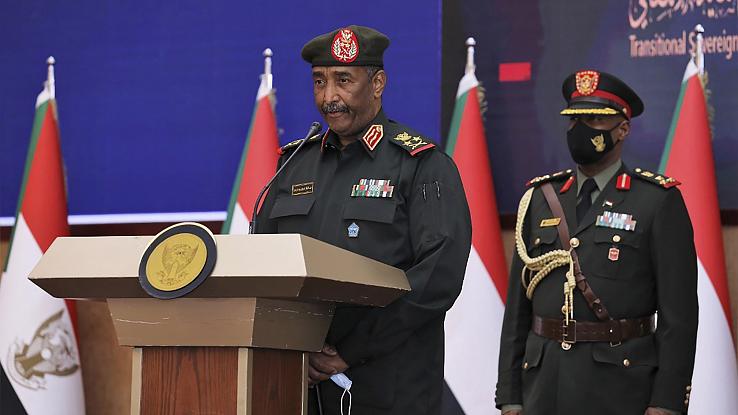Sudan’s top general revoked the state of emergency imposed in the country following the October coup that he led on Sunday. Over the weekend, the country saw yet another day of protests against the military takeover.
Sudan’s ruling military authorities repealed the state of emergency enforced since the military coup in October on Sunday, recommending that anyone arrested under the emergency law be released.
General Abdel-Fattah Burhan, the president of Sudan’s ruling sovereign council, made the decision hours after Sudan’s highest security authority, the Security and Defense Council, proposed.
The announcement came the same day that the United Nations ambassador for Sudan expressed regret for the deaths of two anti-coup protestors in Khartoum on Saturday. During protests in Khartoum’s Kalakla area, the two were slain.
According to the Sudan Doctors Committee, which is part of the pro-democracy movement, one was shot by security forces and the other suffocated after breathing tear gas.
Volker Perthes encouraged the government to act in a “peaceful path out of the situation,” calling for an end to the violence.
The protests on Saturday were part of a nationwide wave of protests. Hundreds of protesters marched across the capital, demanding that constitutional order be restored. Since the protests began late last year, medical groups estimate that nearly a hundred people have died.
After repeated calls from local groups and foreign governments, the state of emergency has been lifted.
International political and economic backing halted after the military coup. The Sudanese government lost 40% of its revenue as the World Bank withdrew two billion dollars in help and the US withdrew 700 million dollars.
Some analysts see the action as a method for the authorities to demonstrate their willingness to engage in discussion.
Protesters are calling for the military to be removed from power. The generals, on the other hand, have stated that they will only hand over power to a democratically elected government. They claim that elections will be held in July 2023, as stipulated in a transitional constitutional document.
The United Nations, the African Union, and the Intergovernmental Authority in Development, an eight-nation east African regional group, have been leading concerted attempts to bridge the gap between the two sides and find a way out of the impasse.





